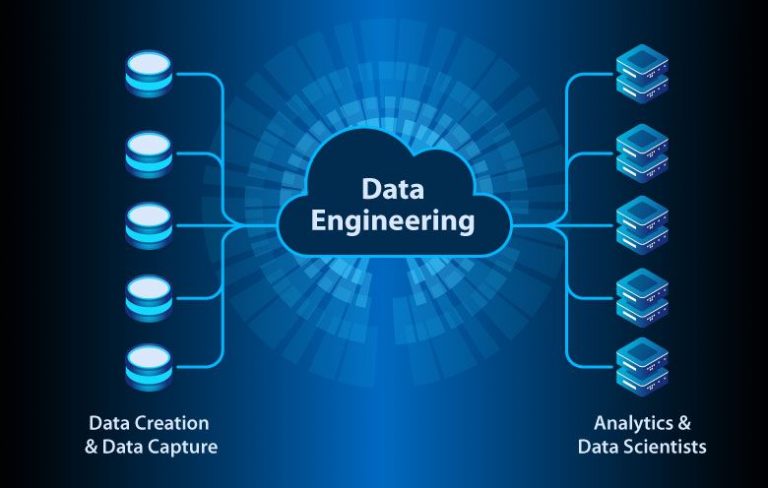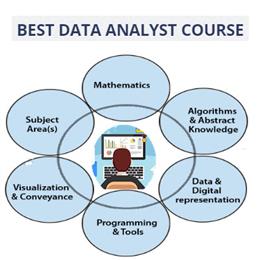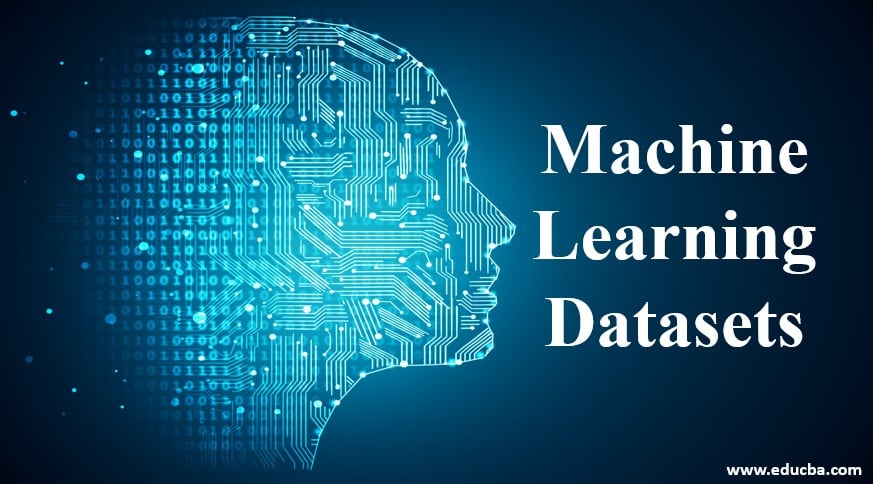Understanding Data Engineering: Key Concepts and Terminology
Data engineering is a critical component of the data science ecosystem, focusing on the design, construction, and maintenance of data architectures. Data engineers are responsible for building data pipelines, ensuring data quality, and managing data warehousing systems. These professionals play a vital role in enabling organizations to make informed decisions based on large datasets.
At the heart of data engineering are essential concepts such as ETL (Extract, Transform, Load) processes, data warehousing, and big data platforms. ETL processes involve extracting raw data from various sources, transforming it into a usable format, and loading it into a data warehouse or data lake for further analysis. Data warehousing systems store and manage large volumes of data, while big data platforms like Hadoop and Spark handle the processing and analysis of extremely large datasets.
Understanding these key concepts and terminology is crucial for anyone interested in pursuing a career in data engineering or looking to enhance their current skill set. Free data engineering courses offer an excellent opportunity to learn about these topics and gain hands-on experience in a low-risk environment.
Why Free Courses? The Advantages of Learning on a Budget
Free data engineering courses offer numerous benefits for those looking to enter the field or expand their existing skill set. The most obvious advantage is the low financial commitment, making these courses accessible to a wide range of learners. Additionally, free courses provide an opportunity to explore various learning platforms and find the one that best suits your learning style.
Another significant advantage of free data engineering courses is the hands-on experience they offer. By working through practical assignments and exercises, you can reinforce your understanding of key concepts and gain valuable experience in a risk-free environment. This hands-on experience is essential for building a strong foundation in data engineering, which you can later build upon in advanced, paid courses.
Furthermore, free courses often serve as a stepping stone to more comprehensive, paid programs. By taking advantage of these free resources, you can determine your interest and aptitude in data engineering before investing in expensive training programs. This approach allows you to make informed decisions about your professional development and ensures that you get the most value out of your educational investment.
Top Free Data Engineering Courses: An In-Depth Analysis
When selecting free data engineering courses, it’s essential to consider factors such as the reputation of the course provider, the depth of the content, and the practical applicability of the skills taught. Here are some top-rated free data engineering courses that offer valuable learning opportunities:
1. Google’s Data Engineering, Big Data, and Machine Learning on GCP
This course, offered by Google Cloud, covers essential data engineering concepts and provides hands-on experience with Google Cloud Platform tools. Students learn about data processing, data warehousing, and machine learning, making it an excellent choice for those interested in a well-rounded data engineering education.
2. AWS’s Big Data Specialty Certificate Preparation
Amazon Web Services (AWS) offers a free course designed to prepare students for the Big Data Specialty Certification exam. The course covers various big data tools and services, including Amazon Kinesis, Amazon Redshift, and AWS Glue. This course is ideal for those looking to gain expertise in big data processing on AWS.
3. Microsoft’s Azure Data Engineering Nanodegree
This course, offered by Udacity in partnership with Microsoft, provides an introduction to data engineering on the Azure platform. Students learn about Azure data services, data processing, and data warehousing. This course is suitable for those with some programming experience and a basic understanding of data concepts.
Course 1: Data Engineering, Big Data, and Machine Learning on GCP
Google’s Data Engineering, Big Data, and Machine Learning on GCP course is an excellent choice for those looking to gain hands-on experience with Google Cloud Platform tools. This course covers essential data engineering concepts, including ETL processes, data warehousing, and big data platforms. The course is structured into modules, each focusing on a specific aspect of data engineering.
The course begins by introducing students to the fundamentals of data engineering and the Google Cloud Platform. It then delves into big data processing using Apache Beam and Cloud Dataflow, data warehousing with BigQuery, and machine learning with AI Platform. Practical assignments throughout the course allow students to apply their knowledge and gain valuable experience working with real-world datasets.
Student testimonials highlight the course’s strengths, such as its comprehensive content, clear explanations, and engaging assignments. However, some students have noted that the course’s pacing can be challenging, especially for those new to data engineering or the Google Cloud Platform.
https://www.youtube.com/watch?v=yTq2qc_eaTk
Course 2: Data Engineering, Big Data, and Machine Learning on AWS
Amazon Web Services (AWS) offers a series of free data engineering courses that cover various aspects of big data processing, data warehousing, and machine learning. This particular course focuses on the practical application of data engineering concepts using AWS tools and services.
The course is divided into several modules, each focusing on a specific AWS service or concept. Topics include data processing using Amazon Kinesis, data warehousing with Amazon Redshift, and big data analytics using Amazon EMR. The course also covers machine learning with SageMaker and how to use AWS Glue for data integration.
Students appreciate the course’s real-world relevance and the opportunity to work with AWS services. However, some have noted that the course could benefit from more in-depth explanations of certain concepts and a more structured approach to the assignments.
Course 3: Data Engineering, Big Data, and Machine Learning on Azure
Microsoft’s Azure platform offers a variety of data engineering tools and services, and this free course provides an in-depth look at how to use them effectively. The course caters to learners with varying backgrounds and goals, making it a versatile option for those interested in data engineering.
The course covers essential data engineering concepts, including ETL processes, data warehousing, and big data platforms. It also delves into Azure-specific services such as Azure Data Factory, Azure Databricks, and Azure Synapse Analytics. Students learn how to design, implement, and manage data pipelines and analytics solutions using these tools.
One of the strengths of this course is its flexibility. It allows students to learn at their own pace and choose the topics that are most relevant to their learning goals. Additionally, the course incorporates practical assignments and real-world examples to help students reinforce their understanding of the concepts covered.
Students who have completed the course have praised its clear explanations and the breadth of topics covered. However, some have noted that the course could benefit from more in-depth explanations of certain concepts and additional hands-on exercises to help solidify their understanding.
How to Maximize Your Learning Experience: Tips and Best Practices
To get the most out of free data engineering courses, follow these strategies and best practices. By doing so, you’ll be well on your way to building a strong foundation in data engineering and preparing yourself for more advanced studies.
Set Clear Learning Objectives
Before diving into a course, determine what you hope to achieve. Are you looking to gain a general understanding of data engineering concepts, or do you want to focus on a specific area, such as data warehousing or big data processing? Having clear objectives will help guide your learning and ensure that you make the most of your time.
Maintain a Consistent Study Schedule
Data engineering is a complex field, and it’s essential to dedicate sufficient time to learning and practicing. Establish a study schedule that works for you and stick to it. Consistency is key to retaining information and building your skills over time.
Engage in Online Communities
Many free data engineering courses have online communities where students can ask questions, share resources, and discuss course material. Participating in these communities can help deepen your understanding of the subject matter and provide valuable networking opportunities.
Seek Out Additional Resources and Practice Opportunities
Complement your coursework with additional resources, such as tutorials, blog posts, and documentation. Hands-on practice is also crucial for reinforcing your understanding of data engineering concepts. Look for practice exercises, datasets, and projects that allow you to apply what you’ve learned.
Conclusion: Empowering Your Data Engineering Journey
Free data engineering courses offer a valuable opportunity to learn new skills, explore different learning platforms, and build a strong foundation in data engineering concepts. By taking advantage of these courses, you can gain hands-on experience, develop your understanding of essential data engineering concepts, and prepare yourself for more advanced studies or career opportunities.
As you embark on your data engineering journey, remember that learning is a continuous process. Stay curious, seek out new resources, and engage with online communities to deepen your understanding and stay up-to-date with the latest trends and technologies. By investing time and effort in your education, you’ll be well-positioned to succeed in this exciting and in-demand field.
Explore the top free data engineering courses outlined in this article and take the first step towards expanding your skill set and advancing your career. Happy learning!





